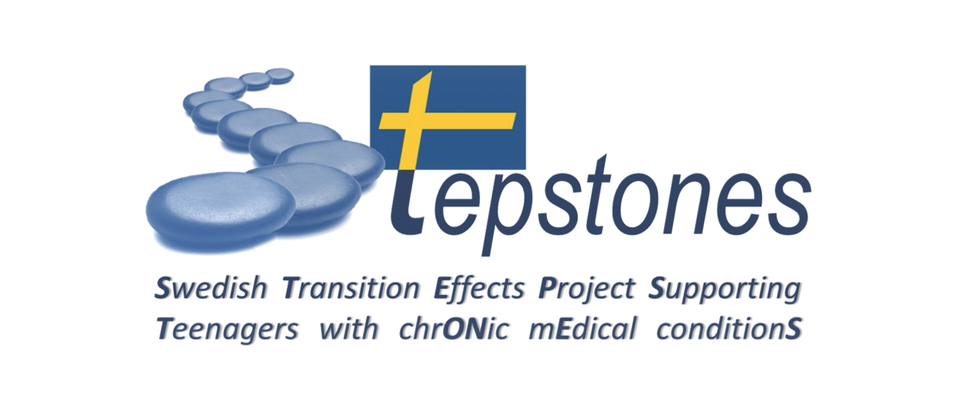Stepstones-Implement

The main purpose of Stepstones-Implement is to implement an efficient and sustainable person-centered transition program for youth with chronic conditions.
Details
- Funder: Hjärt-Lungfonden, Swedish Research Council for Health, Working Life and Welfare,Hjärtebarnsfonden, Centrum för personcentrerad vård (GPCC) och Västra Götalandsregionen
About Stepstones-Implement
Implementing a structured person-centered transition program is a crucial aspect to ensure lifelong and continuous follow-up for young individuals with chronic health conditions. Implementation on a broad scale is likely to lead to more equitable and resource-effective high-quality care for this group of young patients, regardless of where they live in the country. Stepstones-Implement is based on reliable and current knowledge and aims to contribute to creating equitable and high-quality care for youth with chronic conditions nationwide.
Background
A person's life cycle is characterized by several transitions involving life changes. Examples of life transitions include parenthood, adolescence, receiving a diagnosis of illness, recovering from illness, aging, as well as transferring care between different healthcare providers. Like life transitions, transferring care is characterized by challenges and vulnerability with an increased risk of ill-health. When a patient interacts with multiple healthcare providers, there is a risk of gaps in the care continuum, and the patient and involved healthcare professionals may not have a shared understanding of the patient's needs, resources, and situation, which can lead to deficiencies in care. Smooth transitions in care are linked to a functional healthcare continuum and are a crucial factor in providing good and safe care. Deficiencies in care during transitions have been expressed by both patients and their relatives - an issue also advocated by various patient organizations. Additionally, healthcare professionals demand improved routines to promote well-being and medical outcomes for individuals with chronic conditions during vulnerable periods in life.
Purpose
The main purpose of Stepstones-Implement is to implement an effective and sustainable person-centered transition program (Stepstones transition program) for youth with chronic conditions. Initially, this is done by targeting youth with heart diseases. This is achieved through four specific sub-objectives:
- To investigate barriers and facilitators for the implementation and establishment of a person-centered transition program for youth with heart defects at six university hospitals in Sweden offering specialized care for youth with heart diseases.
- To implement a person-centered transition program with predefined implementation strategies at six university hospitals in Sweden providing specialized care for youth with heart defects and other chronic conditions, and to evaluate the effect on patient-reported outcome measures (empowerment, disease-related knowledge, degree of preparation for transition, and experiences of transition) as well as attitudes towards transition care among involved healthcare professionals.
- To study the significance of specially trained local facilitators for implementation and sustainability.
- To adapt the transition program for youth with intellectual and cognitive disabilities through a co-creation process between the youth and their caregivers.
Significance
Implementation of a structured person-centered transition program is a crucial aspect to ensure lifelong and continuous follow-up for young individuals with chronic health conditions. Implementation on a broad scale is likely to lead to more equitable and resource-effective high-quality care for this group of young patients, regardless of where they live in the country. Stepstones- Implement is based on reliable and current knowledge and aims to contribute to creating equitable and high-quality care for youth with heart diseases but will also benefit other groups of young people with chronic conditions nationwide.
Samarbetsparter
The project is carried out in collaboration between university hospitals in Gothenburg, Linköping, Lund, Stockholm, Umeå, and Uppsala, as well as the University of Gothenburg.
